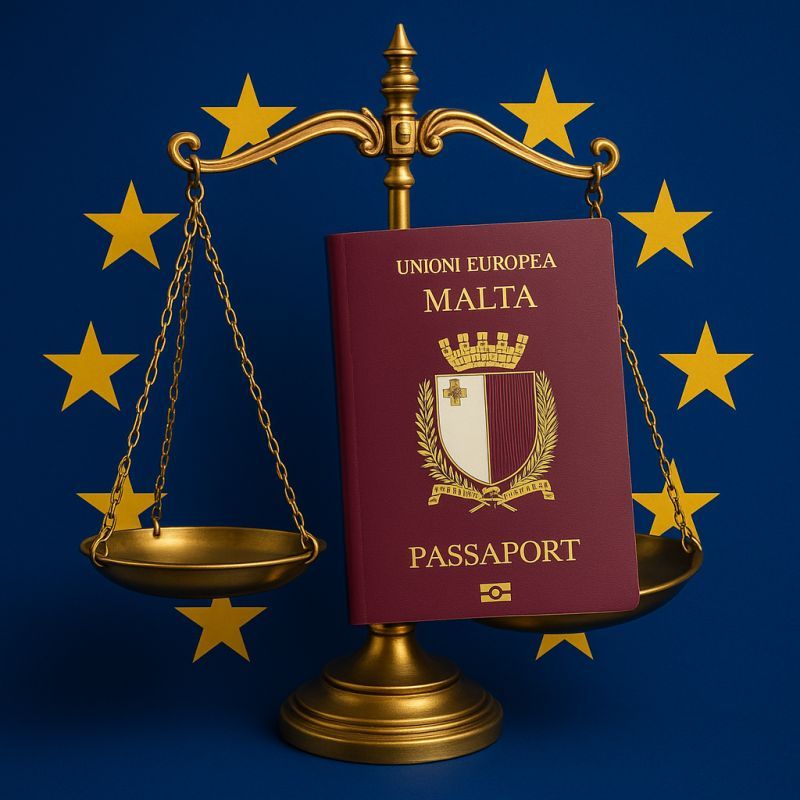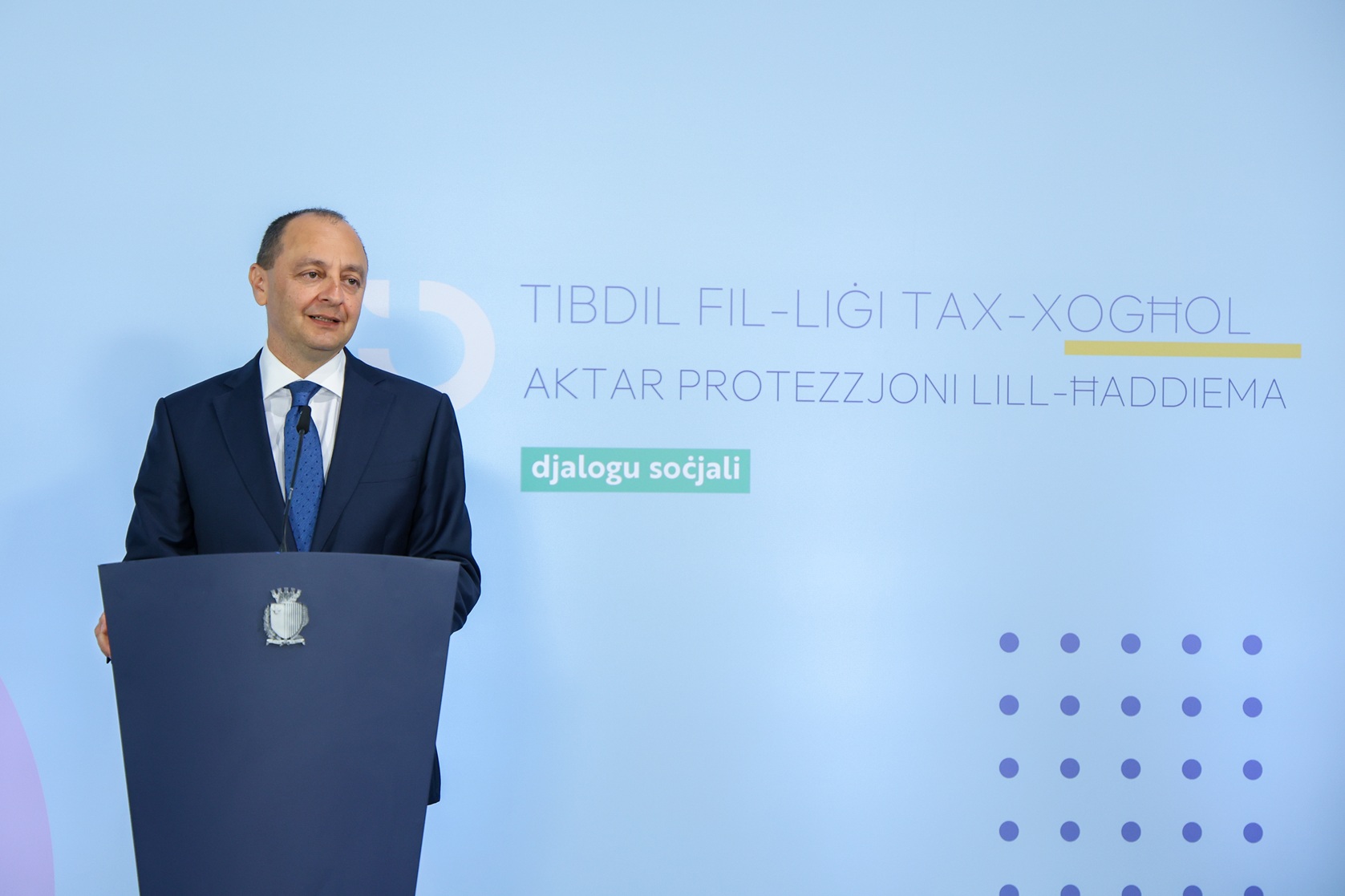The European Court’s ruling against Malta’s golden passport scheme is a potentially landmark decision, with ripple effects to be felt within the bloc. As the nation digests the news, Malta’s politicians are divided in their reactions.
For ex Prime Minister Joseph Muscat, this is a nothing short of an “ironic political ruling”.
“The irony is that our laws on granting citizenship are the most transparent, in contrast to others, in which rules and regulations as far less transparent. I believe the programme, which is the best of its kind in the world, will continue, albeit with different rules, especially since the United States have now come up with a similar one.”
Dr Muscat blamed the opposition party for “working against the country” from the start.
“It is pitiful that those who grew fat attacking Malta’s interests are now euphorically celebrating the loss of a scheme that did so much good for the vulnerable, for social projects during the pandemic, and even for our own banking institutions,” Alex Agius Saliba, Labour MEP added on his own social media.
“Few things are sacred in Europe. The principle of loyal cooperation is possibly one of those few things,” Peter Agius, MEP from the Nationalist Party, wrote.
“We are in over our heads,” Dr Agius warned.
The Nationalist Party as an entity also condemned the Government for the golden passport scheme.
“The Court today told the Labour Government that selling EU citizenship behind the back of the same European states which are to allow EU free movement is breaching that loyalty,” a statement released this morning read.
“For the Nationalist Party, citizenship is more than just a legal status with a price tag – it represents a bond of loyalty, responsibility, and a shared purpose among individuals who have the privilege of being called Maltese.”
In light of this ruling, the Nationalist Party called on the Labour Government to immediately:
1. Suspend the investment for citizenship scheme in its current form;
2. Launch a clear plan with a schedule of amendments to Maltese law to implement the European Court’s decision;
3. Publicly declare that it fully accepts the ruling in the interest of safeguarding our country’s reputation.
Sandra Gauci, head of Malta’s ADPD party welcomed the decision, saying it was “a long time coming”.
“This is possibly a landmark decision,” Jacques Rene Zammit, Maltese lawyer and Press Attache at the Court of Justice of the European Union.
“The judgment outlines the importance of EU Citizenship as ‘one of the major achievements of the solidarity which is at the very foundation of the integration process and which therefore forms part of the identity of the Union as a legal order accepted by the Member States on a basis of reciprocity.’”
This morning (Tuesday) the European Courts found that Malta’s scheme “amounts to the commercialisation of EU citizenship” ruling that Malta failed to fulfil its obligations under the EU Treaties.
The country is thereby ordered to pay the costs associated with this failure.
The Court dismissed Malta’s argument that the granting of citizenship is a purely national competence, saying that “the exercise by the Member States of their power to lay down the conditions for granting their nationality has consequences for the functioning of the European Union as a common legal order.”
The European Commission took Malta to court over its controversial investment-for-citizenship scheme in 2022, currently known as Malta’s Exceptional Investor Naturalisation (MEIN) scheme, which offers fast-track citizenship status in exchange for large investments.
At stake is not only the MEIN scheme, but also the future of similar schemes across the EU.
The European Commission contends that this practice undermines the integrity and security of EU citizenship, advocating for a unified policy across member states.
In contrast, Malta defended its sovereign right to manage its own citizenship laws, emphasising the economic benefits and stringent vetting process of the MEIN.
These kind of schemes were introduced by several Member States after the 2008 financial crisis, in the hope of pushing economic growth.
While Malta’s programme has generated significant revenue, used for national development projects and stimulating economic activity through investments in local businesses and real estate, the European Commission has highlighted potential security risks, questioning the thoroughness and uniformity of background checks.
Essentially, the Commission fears that the sale of citizenship could devalue EU citizenship and pose security threats across the Union.
At the core of Malta’s argument is a long-standing insistence – seemingly confirmed by the Commission itself when Malta first asked it to review its citizenship by investment programme in 2013 – that determining citizenship laws is a fundamental aspect of national sovereignty, crucial for national self-governance.
However, this ruling could signal the end of the MEIN and its decade-long initiative. This would have a direct impact on the Government purse as well as on the many private sector firms and individuals who have made a living from the passport industry.
The court’s decision is binding.
Image credit: Jacques Rene Zammit
Malta’s economy to remain resilient in 2025, bolstered by consumption and services exports – report
The European Commission has revised Malta’s growth outlook upward
Navigating the Digital Services Act: Implications for businesses
Denise Borda, Senior e-Commerce Analyst at the MCA, dissects the Digital Services Act, and what it means for local businesses.
Stronger worker protections introduced through labour law amendments
The Government has announced tougher penalties for employers who breach labour laws, aiming to strengthen worker protections and deter abuse






